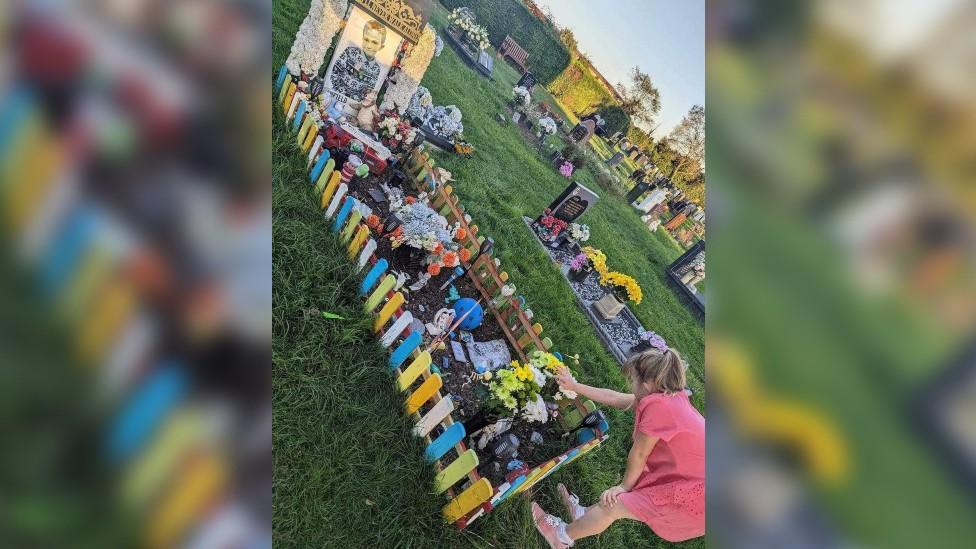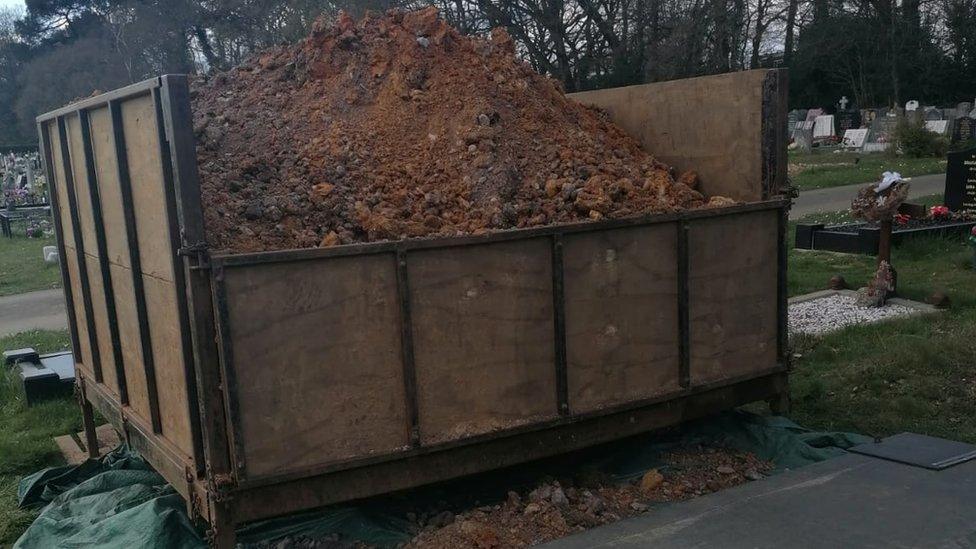Gloucester mum told to remove fence around son's grave
- Published

Harry-Lee's died last year following a severe asthma attack.
A mother has been told she must remove a decorative fence placed around her seven-year-old son's grave.
Sharna Andrews' son Harry-Lee died last year after suffering a severe asthma attack.
She said she would "fight" to keep the small fence at Gloucester Cemeteries and Crematorium.
Gloucester City Council said small fences had to be approved by a stonemason to avoid damaging the ground or pose a health and safety risk.
Ms Andrews, from Tredworth, said she did not realise the fence would not be allowed.
"I will do whatever I can to fight this for my children," she said.
"I've had my son taken away and now I'm having the rights of his garden taken away from us."
She added: "When you're grieving, looking into the rules is not something you think of."

Sharna Andrews said she would fight the request to remove the fence.
Ms Andrews received a letter a few weeks ago telling her to remove the fence by 27 October.
However, the Local Democracy Reporter Service said she had since been given a reprieve until 16 November as city councillors were due to discuss a motion calling for a review of the cemetery rules and regulations.
Councillor Alastair Chambers, from Gloucester City Council, said: "I was shocked and saddened to hear that the city council's rules and regulations at the crematorium and cemetery were so rigid and strict - that they sent even more letters to 12 families advising them that they were removing precious items and decorations from their beloved ones' graves."
"I was appalled to find that these graves included those of young children, where toys and precious gifts were placed."

Harry-Lee's family painted the fence in bright colours.
A council spokesperson said: "The rules and regulations for Gloucester Crematorium have been put in place since August 2014 and are in line with those in place in other cemeteries and graveyards around the country.
"All families are asked to sign up to these at the time of burial and copies are then sent to them to retain.
"We do not allow families to place boardings, kerb sets or chippings on graves unless they are approved by a stonemason, as it allows the ground to be maintained without risk of damaging any plastic or wooden surrounds placed there and protects the health and safety of workers and visitors."

Follow BBC West on Facebook, external, X [formerly Twitter], external and Instagram, external. Send your story ideas to: bristol@bbc.co.uk, external
Related topics
- Published12 April 2022
